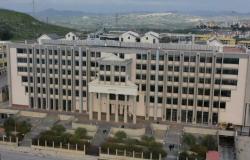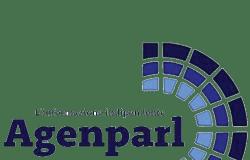Funds are arriving from the Region to assist the most vulnerable.
Funds for the weakest categories
REGGIO EMILIA – Patients of mental health centres, children and adults with autism spectrum disorders, people with intellectual disabilities, or those, especially among the youngest, with eating or learning disorders.
Fragile people
They are not alone: for them, and for all the most fragile people who need assistance, care and services, there is the support of the 2024 “Mental Health Implementation Plan”, approved in recent days by the Regional Council, which also confirms for this 40 million euros per year from the Regional Health Fund for projects, actions and interventions to be carried out throughout the territory, of which over 5 million euros destined for the province of Reggio nell’Emilia.
Seven areas
Seven areas are foreseen by the Plan, which divides the resources between the health authorities of Emilia-Romagna: “Fund for possible autonomy-mental health” (33 million 705 thousand euros), “Autism program – PRIA” for children and the adult (4 million 230 thousand euros in total), assistance to people with eating disorders (820 thousand euros), “Regional program for specific learning disorders” (565 thousand euros), “Psychotic onset programme” (400 thousand euros) and, finally, taking care of people with intellectual disabilities (280 thousand euros).
The objectives
The objective of the interventions and the underlying theme of the mental health implementation plan is the personalized therapeutic approach based on the ‘Health Budget’: this is the innovative organizational-management model in the social-health field experimented by the Emilia-Romagna Region and addressed not only to people with severe mental disorders, but also to those with complex socio-health needs (for example strong social marginality, disabilities, pathological addictions), which aims to put people at the center of intervention strategies. Therefore to create treatment paths based on a personalized therapeutic program, in the name of maximum integration and flexibility of intervention of health and social services, which aims to limit the need for hospitalization in health facilities through the strengthening of interventions home.
The breakdown by ASL
Of the 40 million total resources available, 3,192,564 euros go to the Piacenza local health authority, 5,888,310 euros to the Parma local health authority, Ausl Reggio Emilia 5,026,392 eurosASL Modena 4,358,867 euros, ASL Bologna 7,032,090, ASL Imola 3,294,364, ASL Ferrara 4,453,864, ASL Romagna 6,753,549.
The breakdown by area
33 million and 705 thousand euros are allocated to the “Fund for possible autonomy-Mental Health”: they will finance low-intensity socio-health care interventions for patients in mental health centres. Among the recipients there are people discharged from former psychiatric hospitals and Rems who require specific mental health assistance, those discharged but subjected to non-custodial security measures, people subject to alternative measures to detention and sent by the judicial authority in adult mental health residences.
820 thousand euros are allocated to the program to assist young people between 12 and 25 years old with eating disorders and to support their residential care.
Another 400 thousand euros are allocated to the “Psychotic onset” program, which promotes the health and well-being of people at the onset of psychosis in mental health centers, in line with the recommendations of the Region.
The regional program for specific learning disabilities is financed with 565 thousand euros, in particular for the implementation of early diagnosis and the patient care process, and concerns both young people (6-18 years) and adults .
A total of 4 million and 230 thousand euros are reserved for the Autism-Pria program (“Integrated regional program for territorial assistance to people with autism spectrum disorder), both in children and adults.
Finally, 280 thousand euros are foreseen for the care of people with intellectual disabilities (0-17 year age group).





